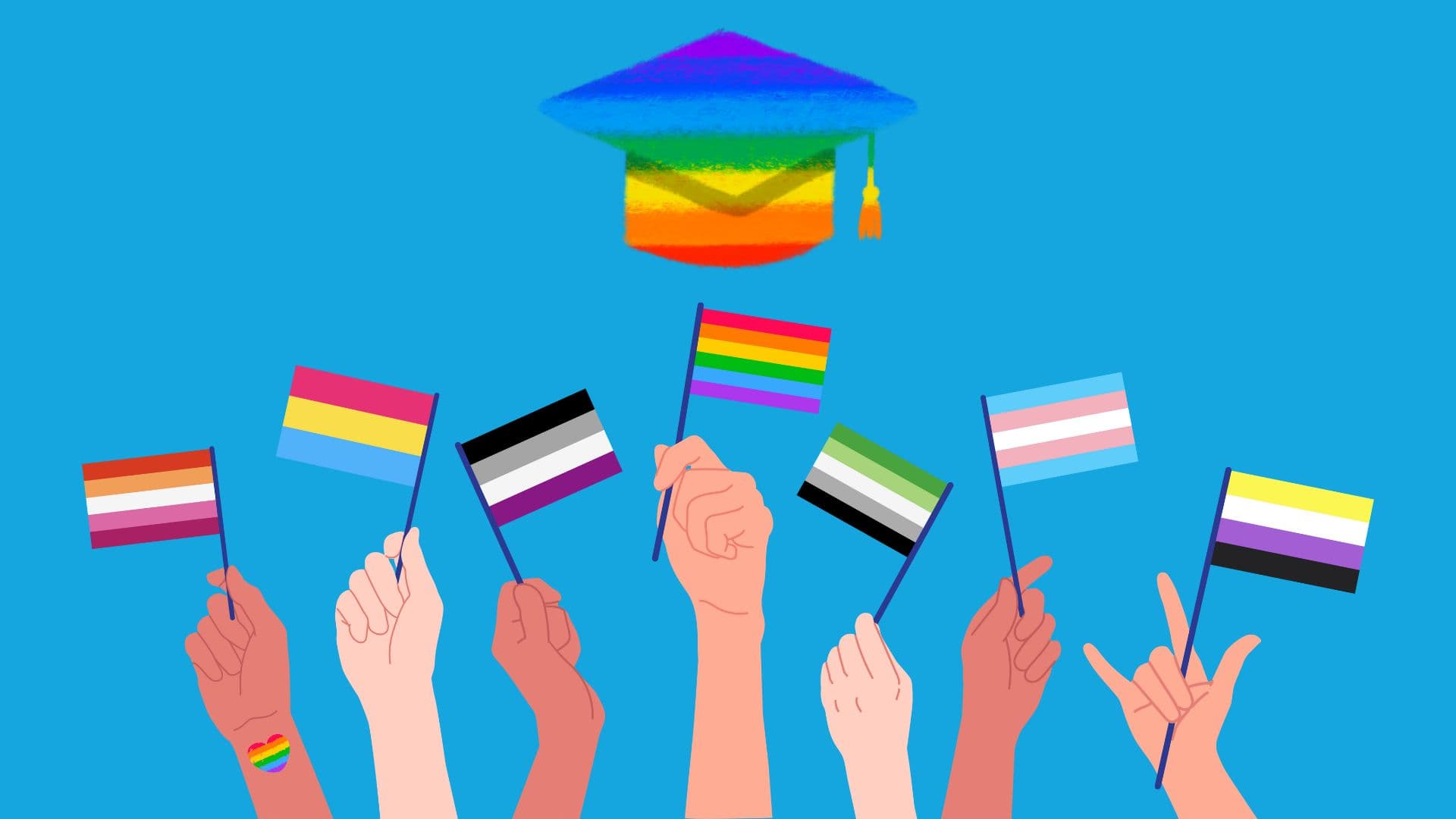
College should be some of the most fun years of your life! So at a minimum, college should be an inclusive environment where the fullness of who you are is not just tolerated, but celebrated. With approximately 10% of American college students identifying as LGBTQ+, a rate higher than that of the general population, LGBTQ+ college students are not alone – wherever they attend.
In this guide, we share helpful tips for LGBTQ+ students that are looking ahead to their college journey, including how to identify LGBTQ-friendly colleges, a list of 20 LGBTQ-friendly colleges to get you started, and helpful resources for students and parents to overcome any challenges. Read on for the complete guide to LGBTQ+ colleges.
Let’s look at some resources for choosing a LGBTQ+-friendly college. Use these tips in order to create a balanced college list with several options for you to grow and thrive at. By exploring the following elements of a college you’re considering, you can better understand the level of inclusivity you can expect. Let’s take a look at what those elements are:
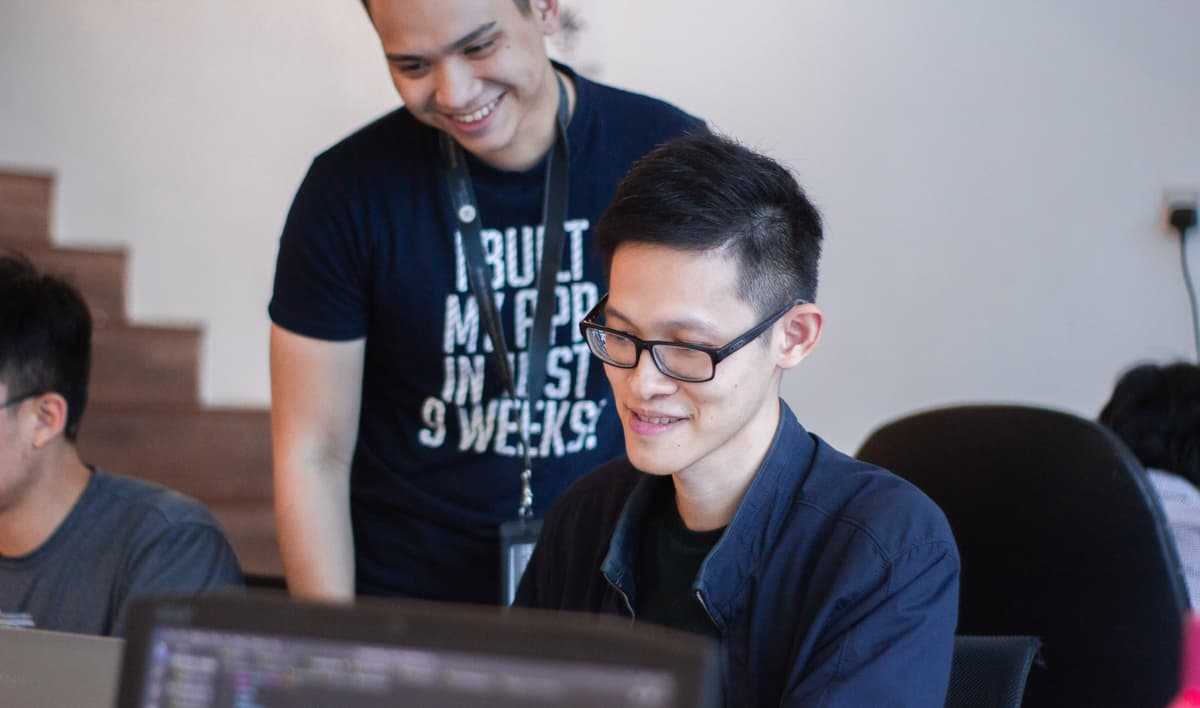
LGBTQ+ Peer Mentoring and Support
Look for mentorship programs specifically for LGBTQ+ students where both the mentor and mentee are LGBTQ+. Usually, this entails the mentor being older, but it doesn’t have to be – it depends on their experiences and if they can help you with the challenges you face. These programs can be crucial to the success of LGBTQ+ students in college due to the community and support they provide. As such, colleges that have these programs should be prioritized. Having such a mentor can pay off for introducing you to campus organizations, showing you the location of your classes, and also helping you to explore off-campus activities.
LGBTQ+ Student Organizations
Joining student organizations that cater to the LGBTQ+ community can be a great way for LGBTQ+ students to thrive in college. Also, find out if there are events catered to this community that are organized by the whole college. Keep an eye out for university-wide communications to join relevant clubs and attend events that interest you.

Campus Culture
Check out relevant college forums (like college Discords, subreddits, and so on) and ask current students about the campus culture and its attitudes towards LGBTQ+ students. Do research on the college’s values and founding principles (for example, certain religious colleges may not be fully accepting of LGBTQ+ students). Seek out the reviews or postings of current LGBTQ+ students or LGBTQ+ alumni and learn about their experiences.
Look for Out Students and Faculty
You can usually look up statistics to find out what percentage of students and faculty publicly identify as LGBTQ+. See if you are comfortable with this percentage and how it compares to other colleges you’re considering. Publicly out faculty can serve as a barometer for how open and accepting the university is for out individuals.
Inclusive Housing (Gender Neutral)
Find out if the college has gender-inclusive housing. If it doesn’t, ask about what other accommodations it makes for LGBTQ+ students, especially nonbinary ones. Many campuses are becoming more progressive and adding more inclusive housing options, but not all have these resources just yet. A campus that has inclusive housing is more likely to be on the forefront of the movement towards gender-neutrality.
Campus Safety and Security
Unfortunately, LGBTQ+ students can be disproportionately affected by harassment, physical violence, and sexual assault. Research the college to learn about the strength of its on-campus security, emergency beacons, and secure facilities. Also, see if there are any resources similar to these that are specifically for their LGBTQ+ students.
Campus Health Resources
LGBTQ+ students face unique physical and mental health needs, which is why it’s important to consider the quality of the college’s health center and the utility of its health coverage. Learn about the college’s health services to see if these needs are met by empathetic health personnel, and if LGBTQ+ professionals are represented in the health staff (especially for mental health needs). Remember that not every college has mental health staff and that mental health issues are vital to all students, especially LGBTQ+ students who are part of a more vulnerable population.
Greater Local Area
Research the community and larger region adjoining the college to see if it’s fun, safe, and accepting of LGBTQ+ students. You will be spending several years of your life at a given college, so check out the surroundings to see if they have captivating attractions to entertain you. Make sure the local area fits your needs and passions well. Look at the events and activities held in the area to see if they appeal to you and also if any specifically cater to the LGBTQ+ community.
Degree Programs
As you finish up high school, you may already have a major in mind or a general academic area planned. See if the college you are interested in offers the major/program you intend to study. Also check if LGBTQ+ students at this college are in the same major/program. Although your plans may change depending on what you want to do after you graduate, your major/degree plans are an important part of your overall college experience.
By using these tips, you can come up with a filtered college list. Use them in a way where you emphasize the features in a college that appeal to you the most as an LGBTQ+ student. Below is a sample list of colleges where LGBTQ+ students feel largely welcomed, both for reference and to give you some suggestions of colleges to consider.
We researched some colleges known for their LGBTQ+ support systems and communities, and created a list in order to help out students with their college search. Here it is! Consult the details provided on the colleges below and feel free to do more research on the colleges if they interest you. Our list isn’t exhaustive, so look at the features of the colleges on the list that are attractive to you, and do your own research to find other colleges that match that criteria as well.
Without further adieu, here is our top list of LGBTQ+-friendly colleges, as graded by the factors listed above:
Princeton University
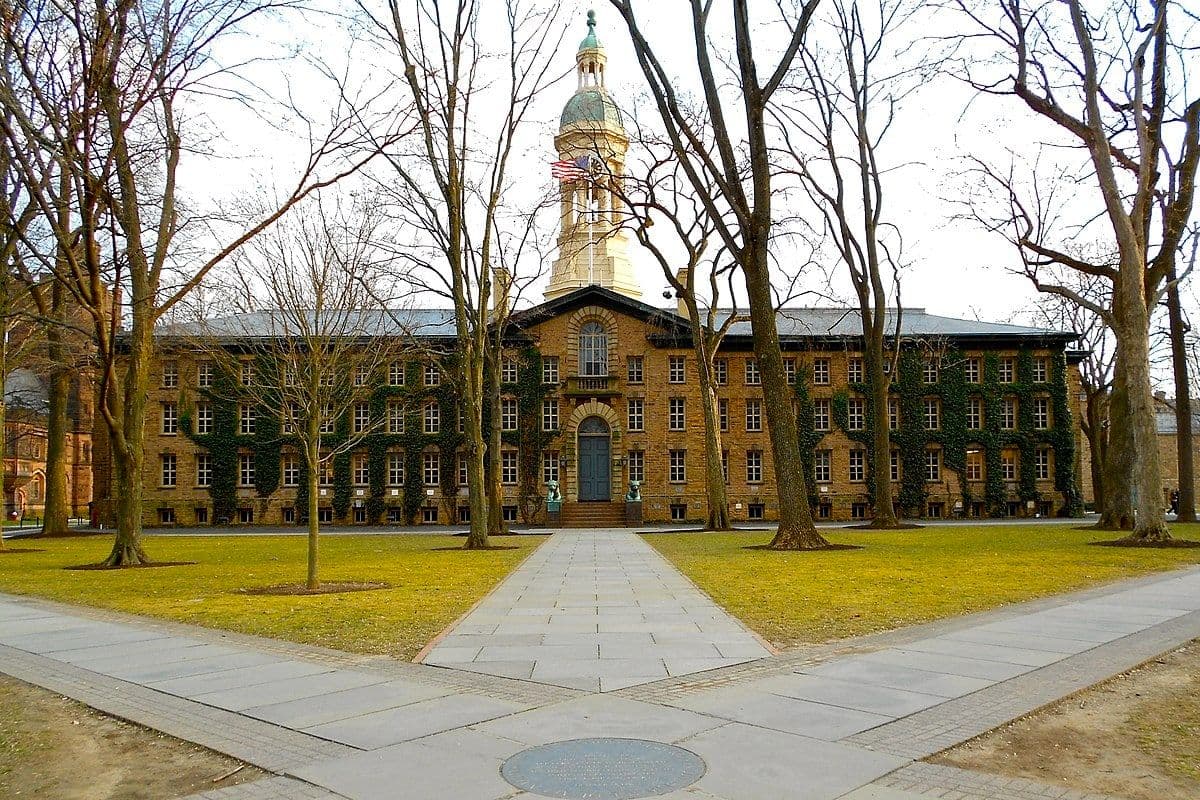
Princeton University is an Ivy League university located in Princeton, New Jersey that is arguably the top university in the United States and the entire world as affirmed by multiple rankings. It is one of the oldest universities in the United States and is notable among top schools and the Ivy League for being undergraduate focused (it has no business, law, or medical school). Princeton’s Office of Diversity and Inclusion has the Gender+Sexuality Resource Center (GSRC) which provides LGBT services to Princeton community members. The GSRC ensures that LGBTQ+ students have their own Lavender Graduation, runs an Out in STEM program that supports LGBTQ+ students in STEM, and maintains the Q’nnections program which preserves a mentorship network among LGBTQ+ students, among many other services.
University of Pennsylvania
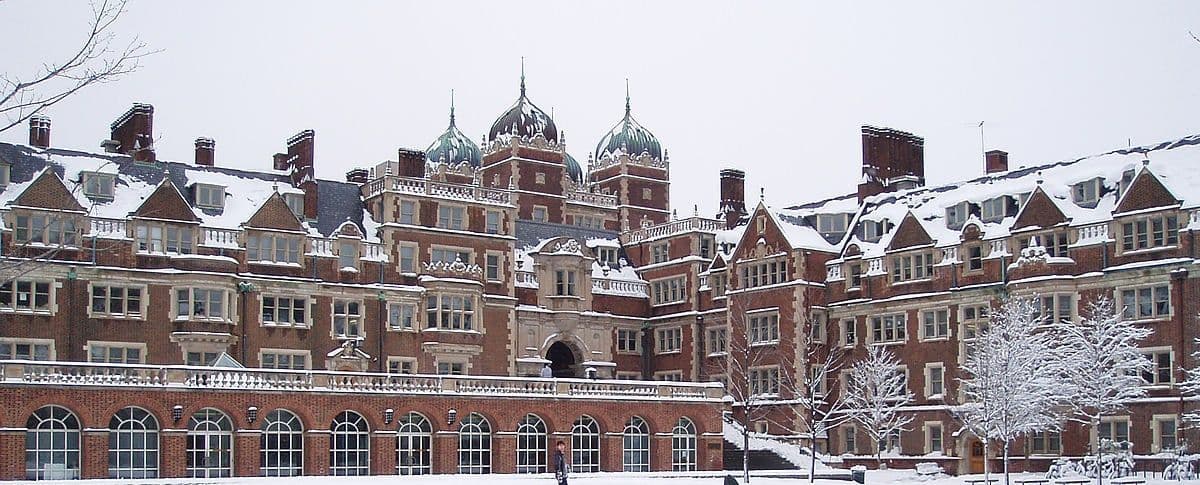
The University of Pennsylvania is an Ivy League university located in Philadelphia, Pennsylvania. It is one of the oldest universities in the United States and one of the top universities in the world. It has the Wharton School, which is arguably the top undergraduate business program and MBA program in the entire world. The university has an LGBT center which plans regular events like QPenn, an annual weeklong university celebration. The center also allows registered queer-themed organizations to reserve spaces for select programs and maintains an PennLGBTC Library, which can even be accessed digitally. Philadelphia is a global city with incredible diversity and prides itself on its open-minded ideals.
University of Michigan – Ann Arbor
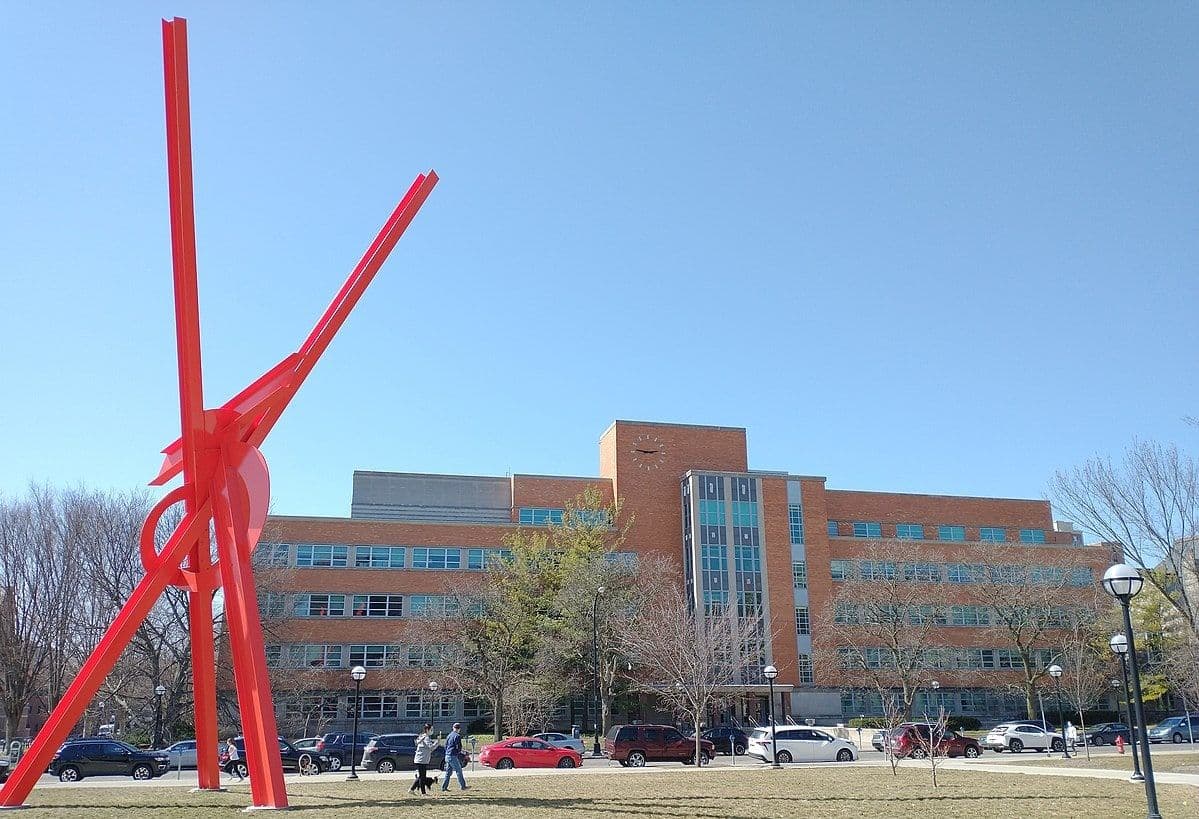
The University of Michigan – Ann Arbor is a public university located in Ann Arbor, Michigan. It is the top university in the state of Michigan, the flagship campus of the University of Michigan system, and one of the top public universities in the United States. It is especially renowned for its dentistry program. The University of Michigan’s College of Literature, Science, and the Arts offers a LGBTQ graduate certificate as part of its Women’s and Gender Studies major. It also offers an LGBTQ and Sexuality Studies minor. The university has a Spectrum Center to support all queer students with regular events, workshops and trainings, and mentorship. Ann Arbor is also the most liberal city in Michigan.
University of Maryland – College Park
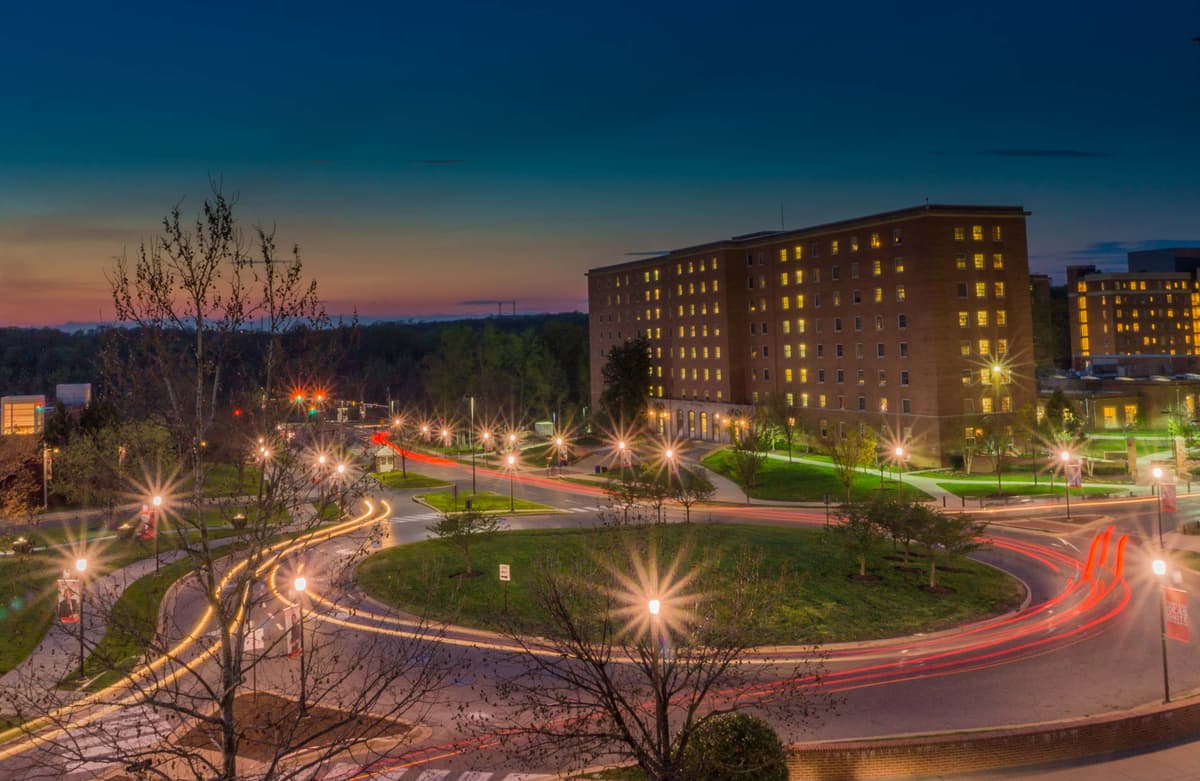
The flagship campus of the University of Maryland college system and the top public school in the state. It is located in College Park, in the Washington D.C. metropolitan area. The college has its own LGBTQ+ equity center with its own community, resources, and programming. Many courses in the LGBTQ+ studies subject area are offered, such as introduction to LGBTQ studies and black queer studies. Several wellness workshops are offered and many LGBTQ+ student organizations are affiliated with the larger equity center.
San Diego State University
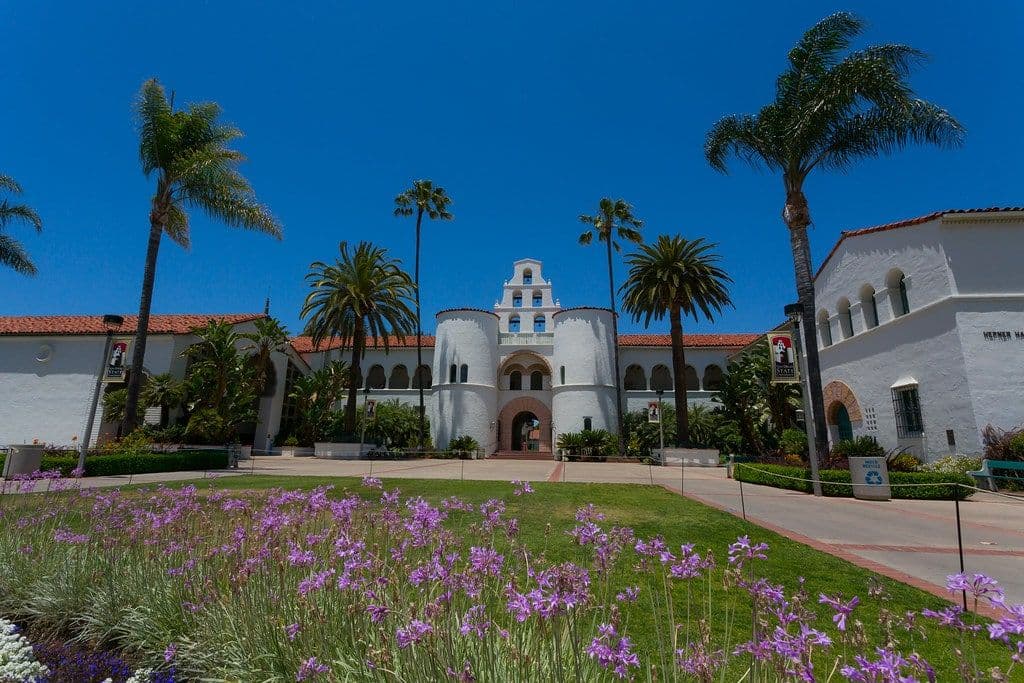
San Diego State University is a large public university in San Diego, California that is affiliated with the California State University system. The university has an LGBTQ+ studies major offered through the College of Arts and Letters (the only school in California and one of the only ones in the entire United States to have such a major). The career services department has specific resources designed to support LGBTQ+ students entering the workforce. The university has a Pride Center with regular event programming and comprehensive mental health services and is ranked extremely high in most lists of LGBTQ+-friendly universities. And lastly, California is a state known for its acceptance of the LGBTQ+ community.
University of Washington – Seattle
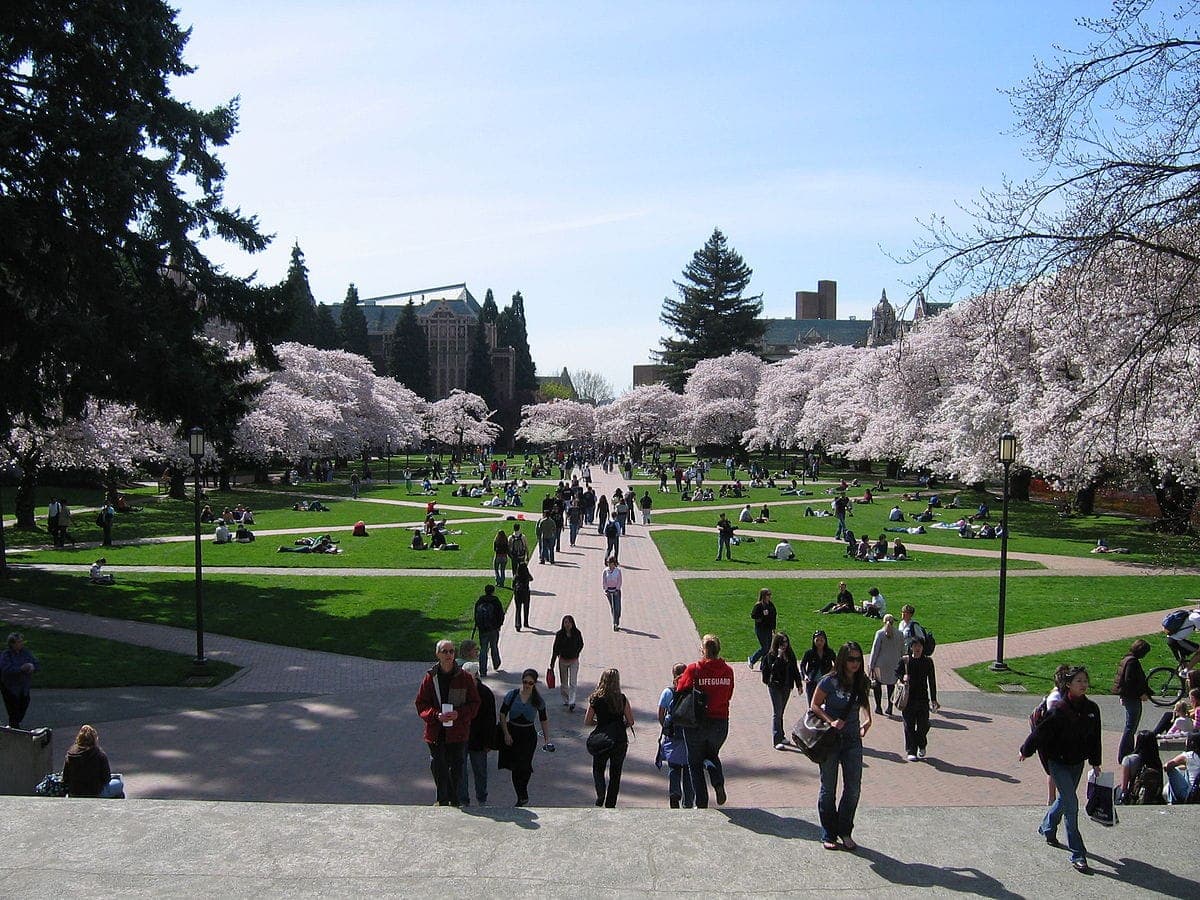
The University of Washington-Seattle is a public university in Seattle, Washington (naturally). It is the flagship campus of the University of Washington system and is the top public university in Washington State. The university is well-noted for its computer science program, with its proximity to top employers like Boeing, Amazon, Starbucks, and Microsoft. The university’s career and internship center has personnel dedicated to supporting LGBTQ+ students to navigate the workforce. The university also has a Q Center fully dedicated to help out all queer-identifying students and informs students of helpful resources like a list of gender-neutral bathrooms. As a city, Seattle is known for its inclusiveness and diversity.
Rutgers University
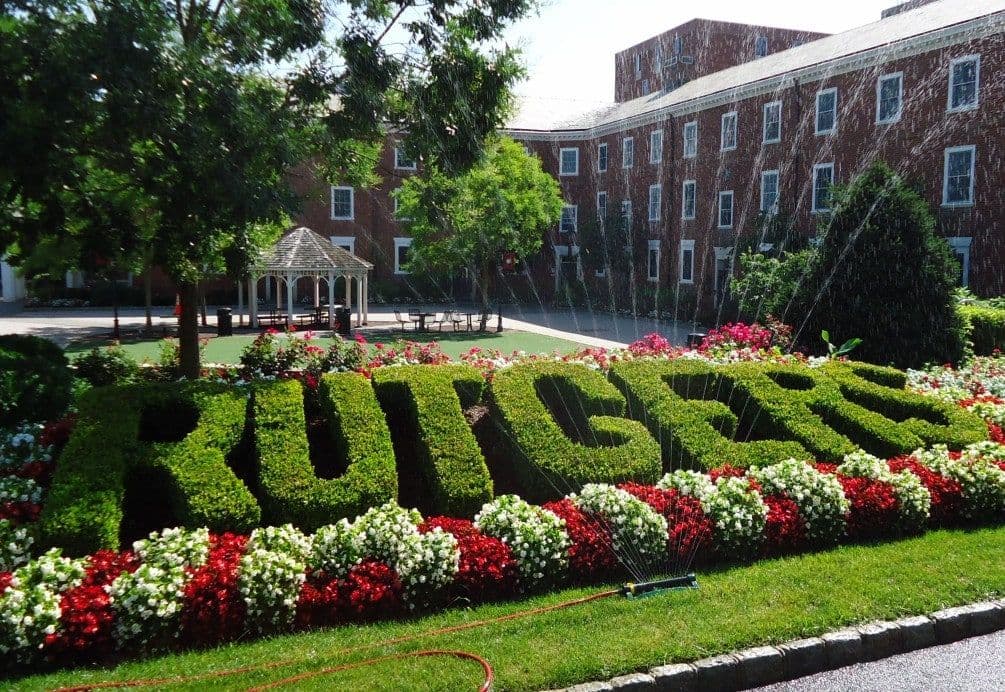
Rutgers University is located in New Brunswick, New Jersey. It is the top public university in New Jersey and one of the oldest universities in the United States. It has a Center for Social Justice Education and LGBT Communities (SJE), which provides programming for LGBTQ+ community members (students, staff, and faculty). The SJE hosts regular events for the LGBTQ+ community, runs a Safe(R) Space Workshop to train campus residents on LGBTQ+ issues, and provides several inclusive housing options. The state of New Jersey is also known for its liberal values and diversity.
Kansas State University
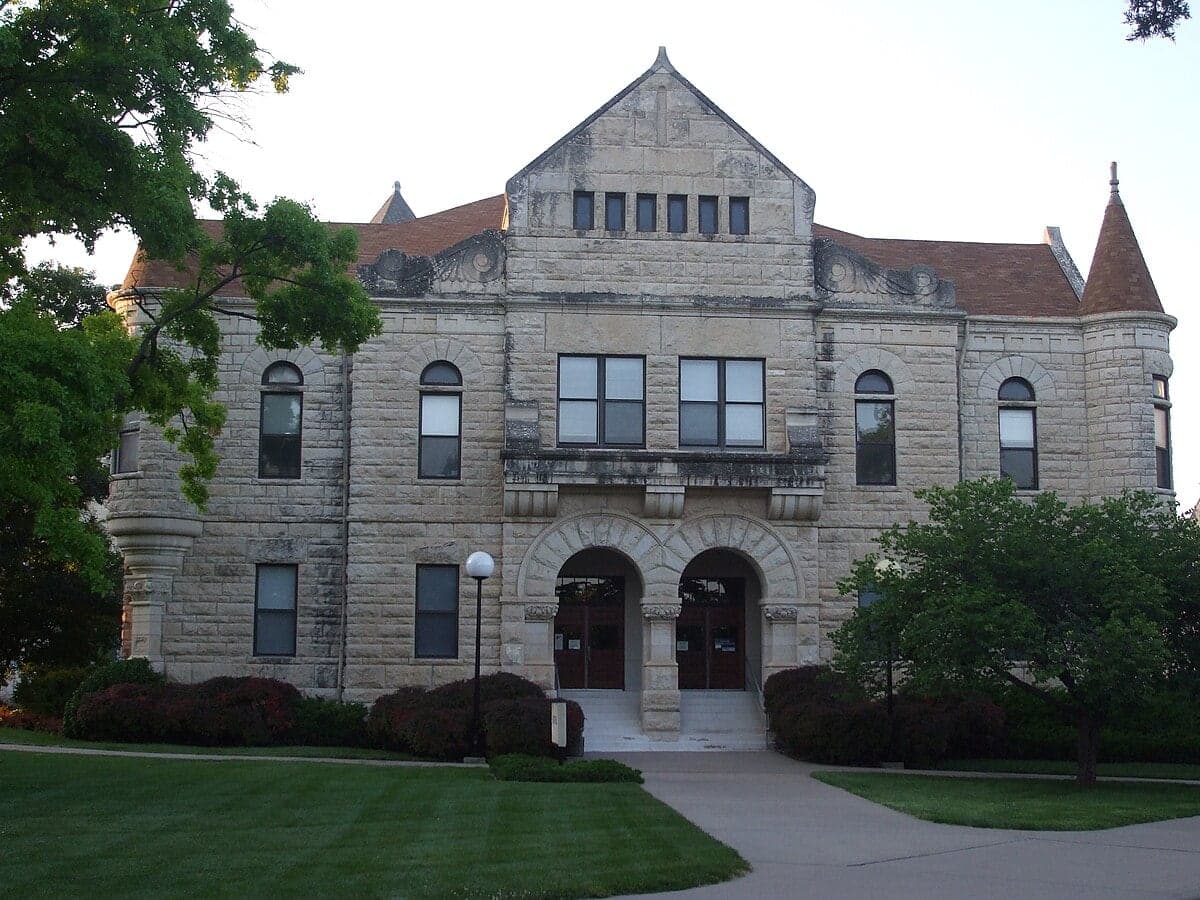
Kansas State University is a public university in Manhattan, Kansas and is the first public university to be opened in the state. Kansas State University has a comprehensive LGBT Resource Center which features the Sexuality and Gender Alliance (SAGA), which hosts several programs to bring LGBTQ+ students together with allies. The university also has a chapter of oSTEM, which is a national leadership society of LGBTQ+ students in STEM fields. Although Kansas leans conservative, the city of Manhattan is quite liberal.
Indiana University – Bloomington
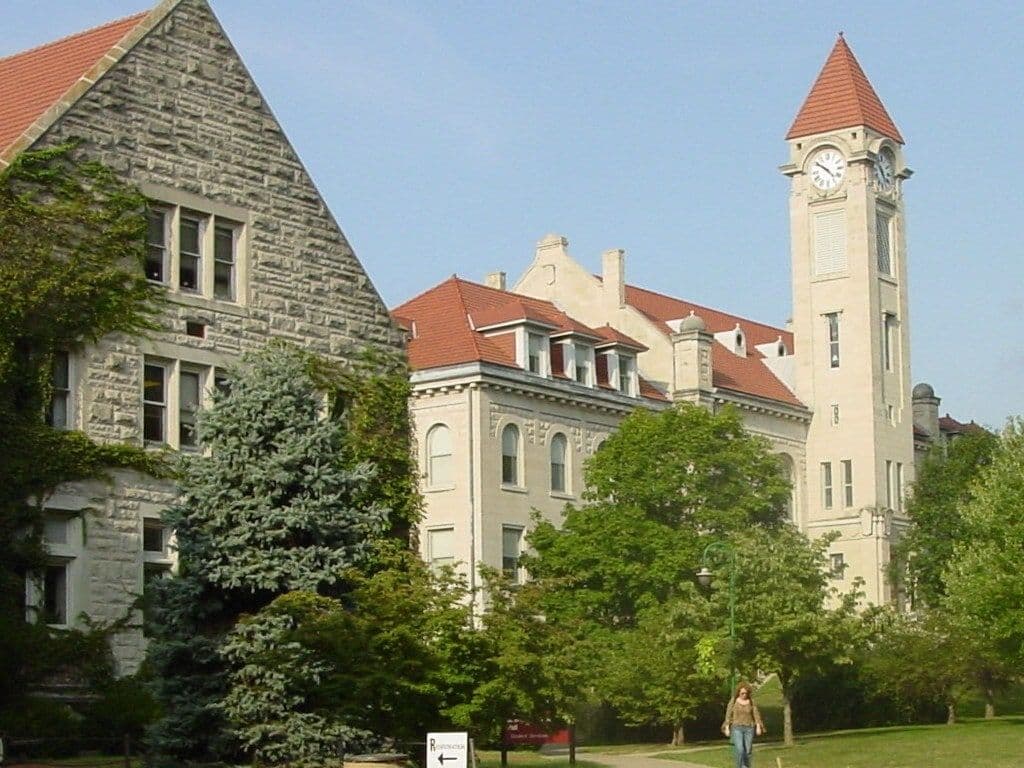
Indiana University – Bloomington is the largest public university in Indiana and is the flagship campus of the Indiana University system. It is well-noted for its Kelley School of Business, home to one of the top undergraduate business schools in the nation (while also having a high-ranked MBA program). The university is home to the LGBTQ+ Culture Center, which is itself a program of the Office of the Vice President for Diversity, Equity, and Inclusion (OVPDEI). The center runs a special LGBTQ+ library with queer-specific literature, and also an LGBTQ+ mentorship program for professional purposes. Monroe County, home to Bloomington, is an extremely liberal area.
The Ohio State University
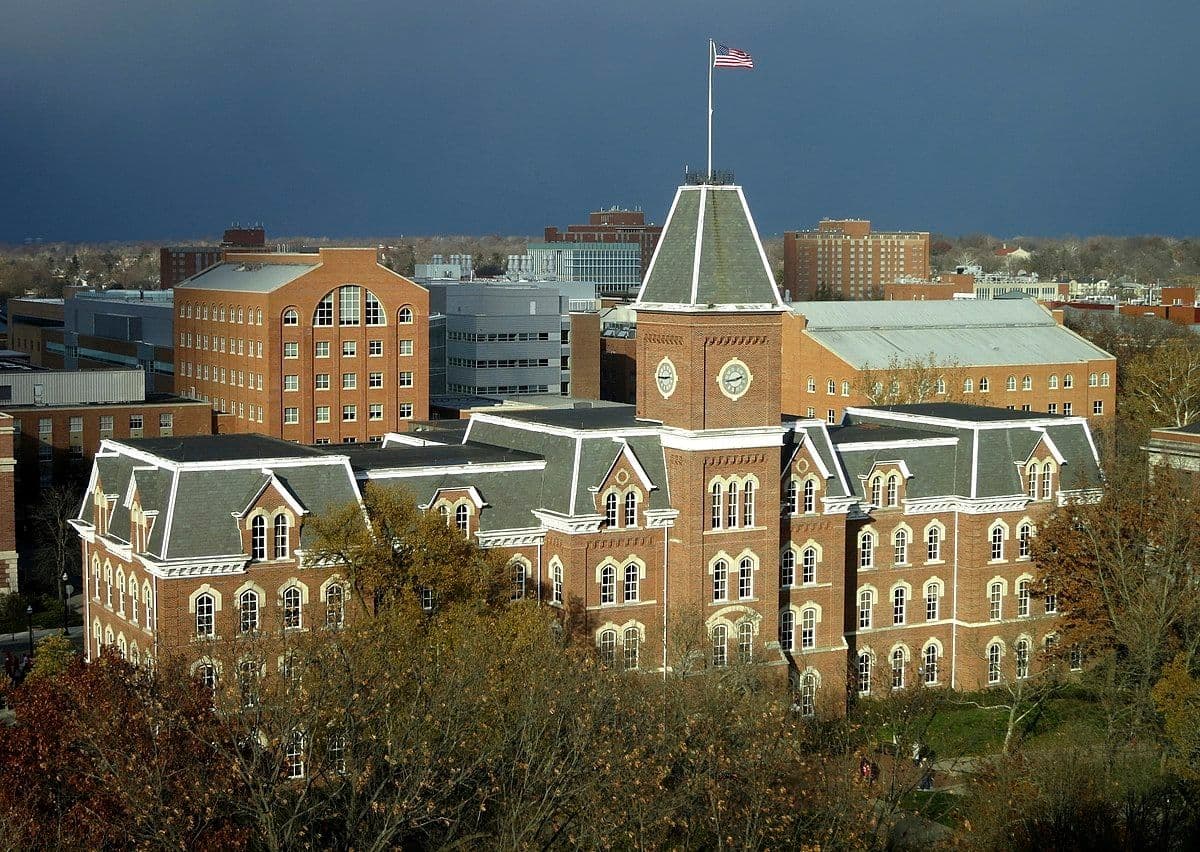
The Ohio State University is a large public university in Columbus, Ohio that is also the top public university in Ohio. The university currently has 17 LGBTQ-themed student organizations. It maintains a Scarlet and Gay Alumni Society to connect queer alumni, provide scholarships to queer Ohio State students, and collaborate with local community associations. The Center for Belonging and Social Change hosts several queer-themed events, especially during LGBTQ+ month. While Ohio as a whole is not politically liberal at the time of this writing, the city of Columbus is more accepting of LGBTQ+ persons.
Lehigh University
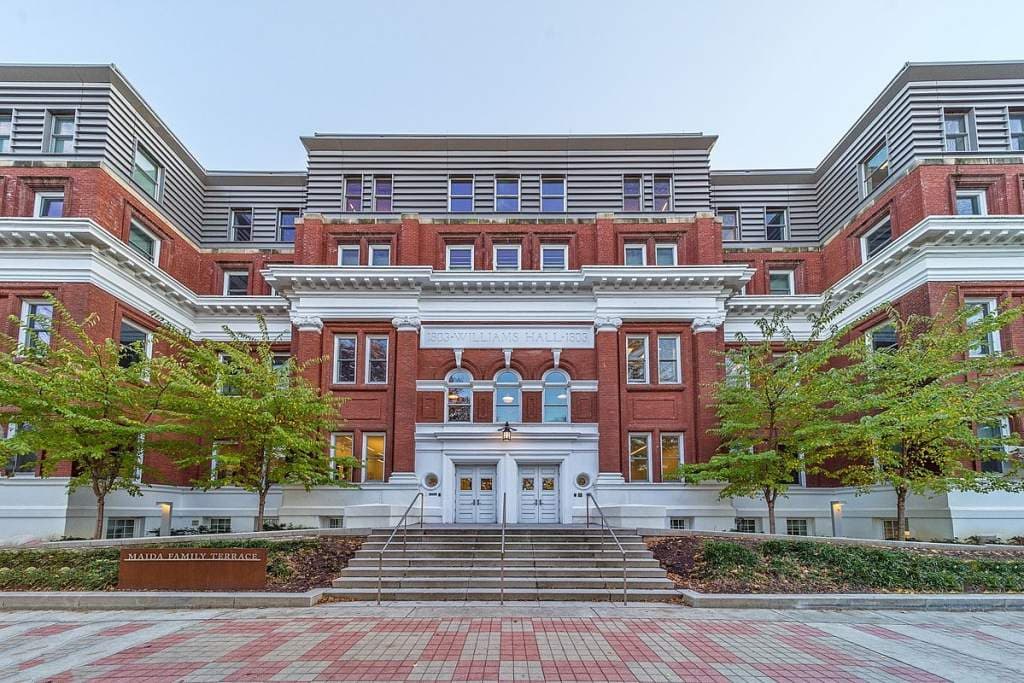
Lehigh University is a private university in Bethlehem, Pennsylvania located in the Lehigh Valley region. The Pride Center for Sexual Orientation and Gender Diversity is a university-run center that provides services and programs for the entire Lehigh Valley community. It created a list of gender-inclusive restrooms and also runs a Pride Center library for queer-themed books. Although Pennsylvania outside of Philadelphia and Pittsburgh leans conservative, Bethlehem is younger and more inclusive than the surrounding areas.
Tufts University
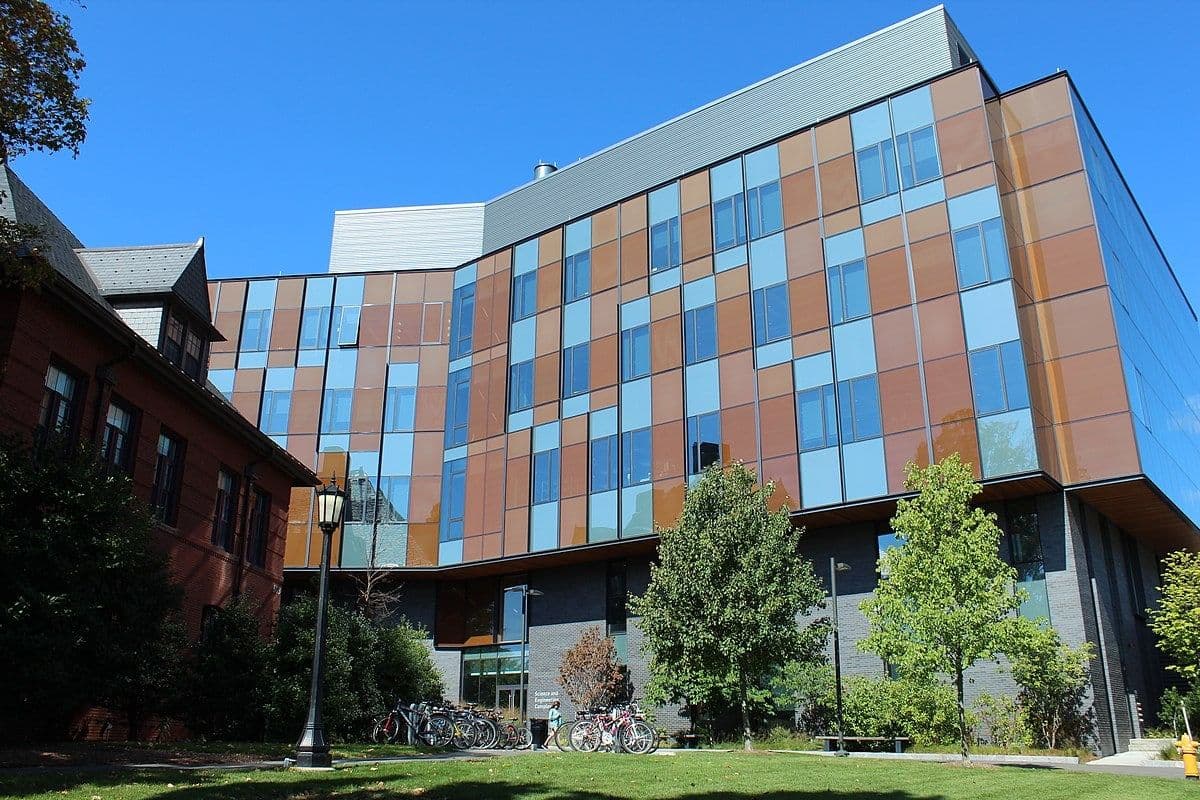
Tufts University is a private university in the Greater Boston area split between the cities of Medford and Somerville, and is one of the top 35 universities in the United States according to several rankings. It is especially renowned for its international relations program. The LGBT Center is run by the university’s Division of Student Diversity and Inclusion and helps administrate the different LGBTQ+ student groups at the university. The center also offers free safer sex products and a Gender Affirmation Closet. Massachusetts is also one of the most LGBTQ+ friendly states in the country.
Macalester College
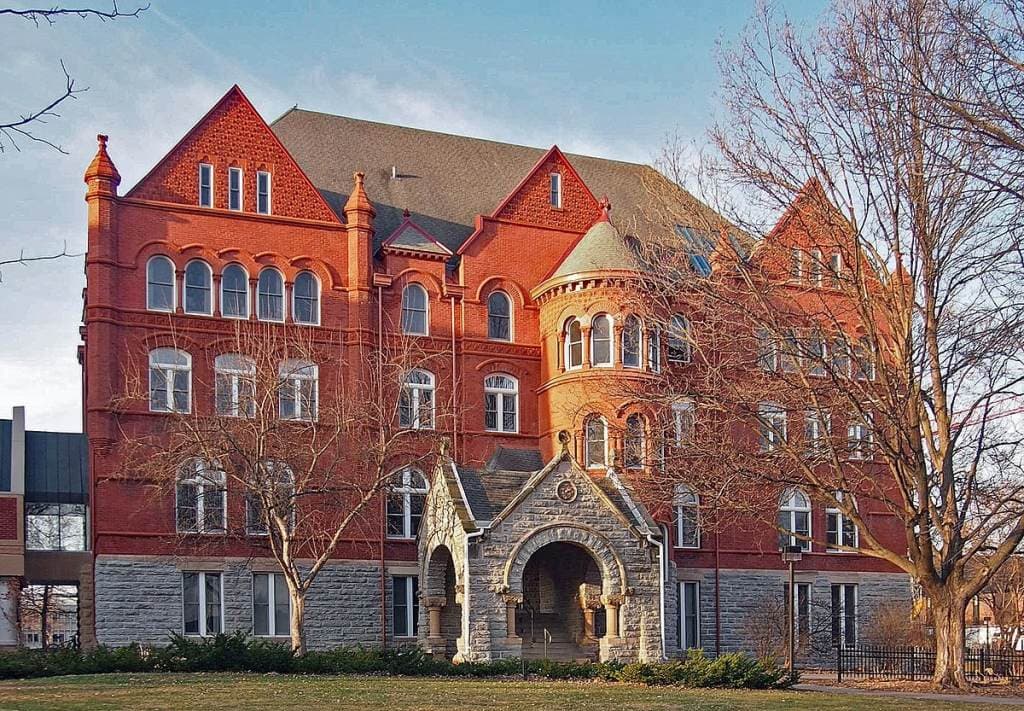
Macalester College is a private liberal arts college in Saint Paul, Minnesota. Macalester’s Career Exploration Center has detailed recommendations on how to be queer in the workplace, and even about how to come out (if you want to come out) in resumes or interviews. It also has a Gender & Sexuality Commons or GSC (part of its Lealtad-Suzuki Center for Social Justice) which is an exploratory space initiated by student organizations that is also connected to health and wellness services. St. Paul, and the larger Twin Cities metropolitan area, is known as a liberal center in the Midwest.
Purdue University
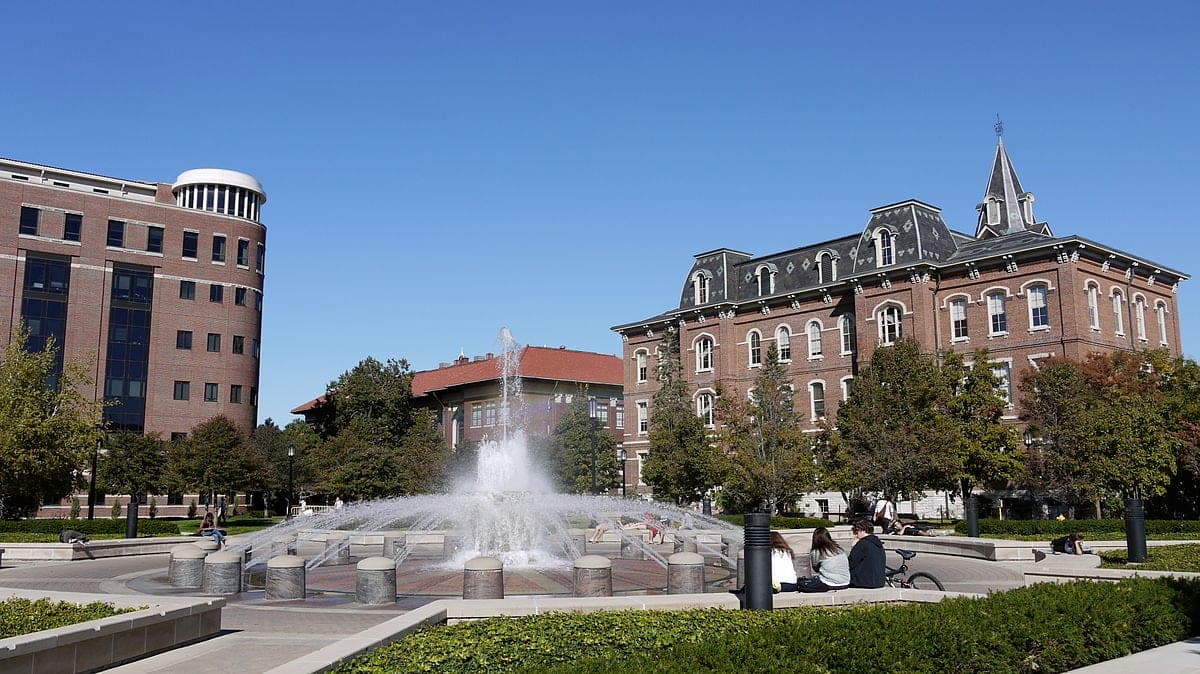
Purdue University is a public university in West Lafayette, Indiana that is the top public university in Indiana. It is extremely renowned for its engineering program at both the undergraduate and graduate levels. It has an LGBTQ Center which has a distinguished lecture series, advocacy for equality and inclusion, and an exciting calendar of events. It also includes a dedicated Safe Zone that provides a welcoming environment for all, regardless of gender identity or sexual orientation. West Lafayette is a young and inclusive town thanks to the large college presence.
University of Massachusetts – Amherst
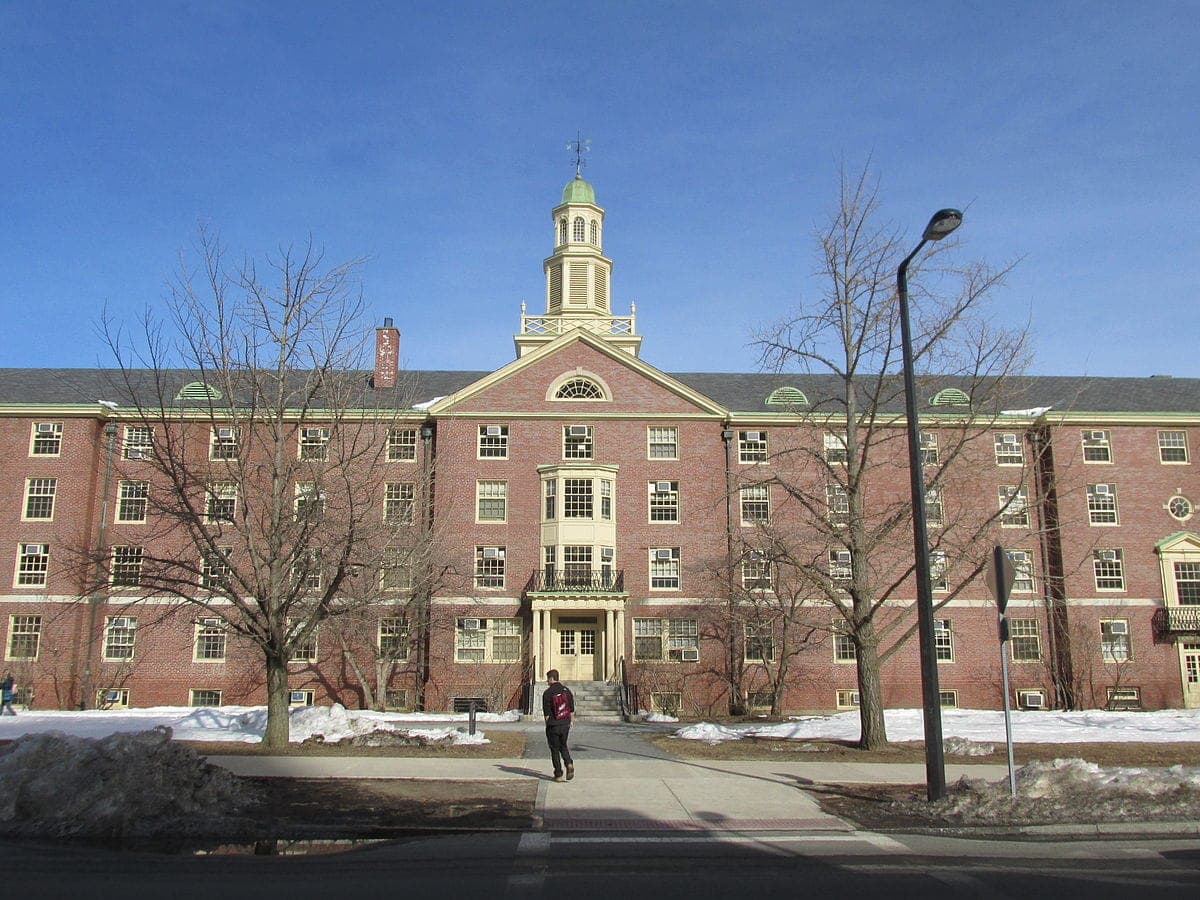
The University of Massachusett-Amherst is a public university in Amherst, Massachusetts that is the best public university in Massachusetts, the largest public university in Massachusetts, and the oldest public university in Massachusetts. The Stonewall Center resources the queer community at the university and offers LGBTQ+ workshops and support groups. The center also maintains a virtual Discord lounge and a list of gender-inclusive restrooms.
Elon University
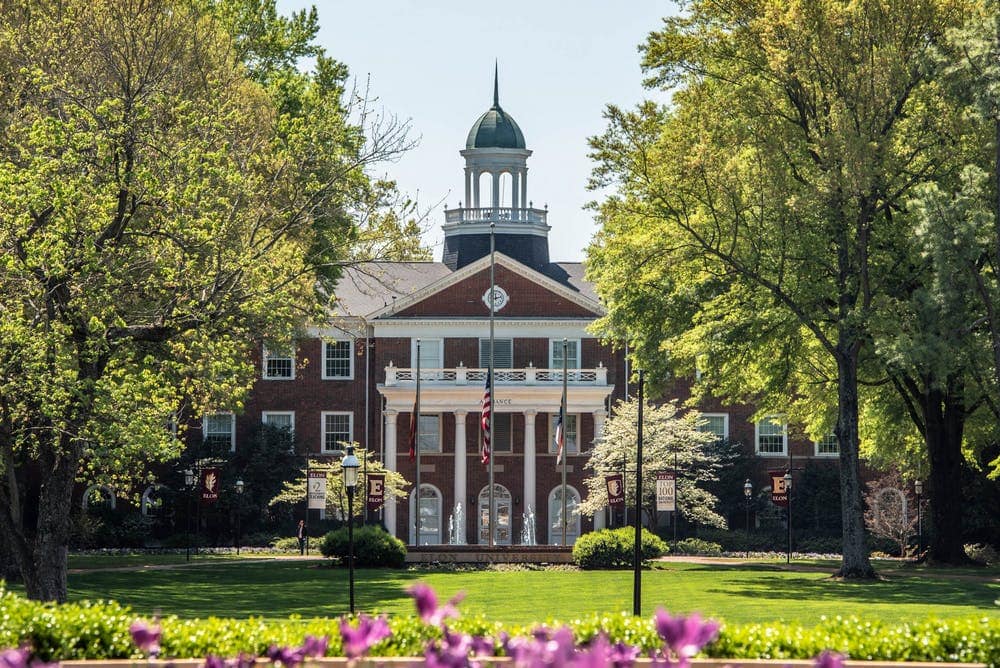
Elon University is a public university in Elon, North Carolina. The university has an Gender and LGBTQIA Center (GLC) which helps organize inclusive housing, holds regular events and trainings, and provides education to LGBTQIA students, staff, and survivors of sexual violence.
University of Colorado – Boulder
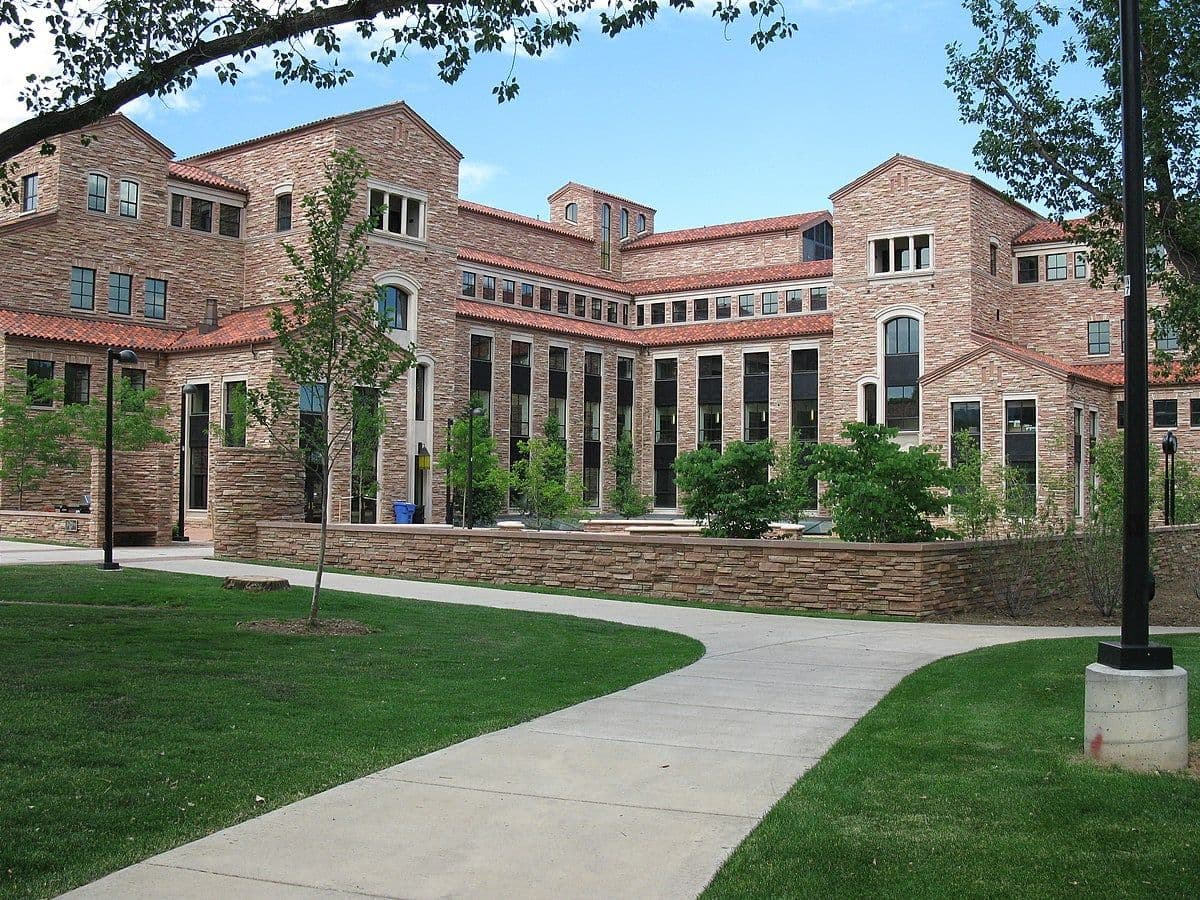
The University of Colorado – Boulder is a public university that is the top university in Colorado and the flagship campus of the University of Colorado system. The university coordinates specialized healthcare for LGBTQIA+ students. It has an LGBTQ Studies program, which is an interdisciplinary program spanning 30 courses across different departments. Finally, it houses a recently opened Pride Office to support the queer community. Boulder County, home to the eponymous city, is very inclusive and accepting of identities.
University of Texas – Dallas
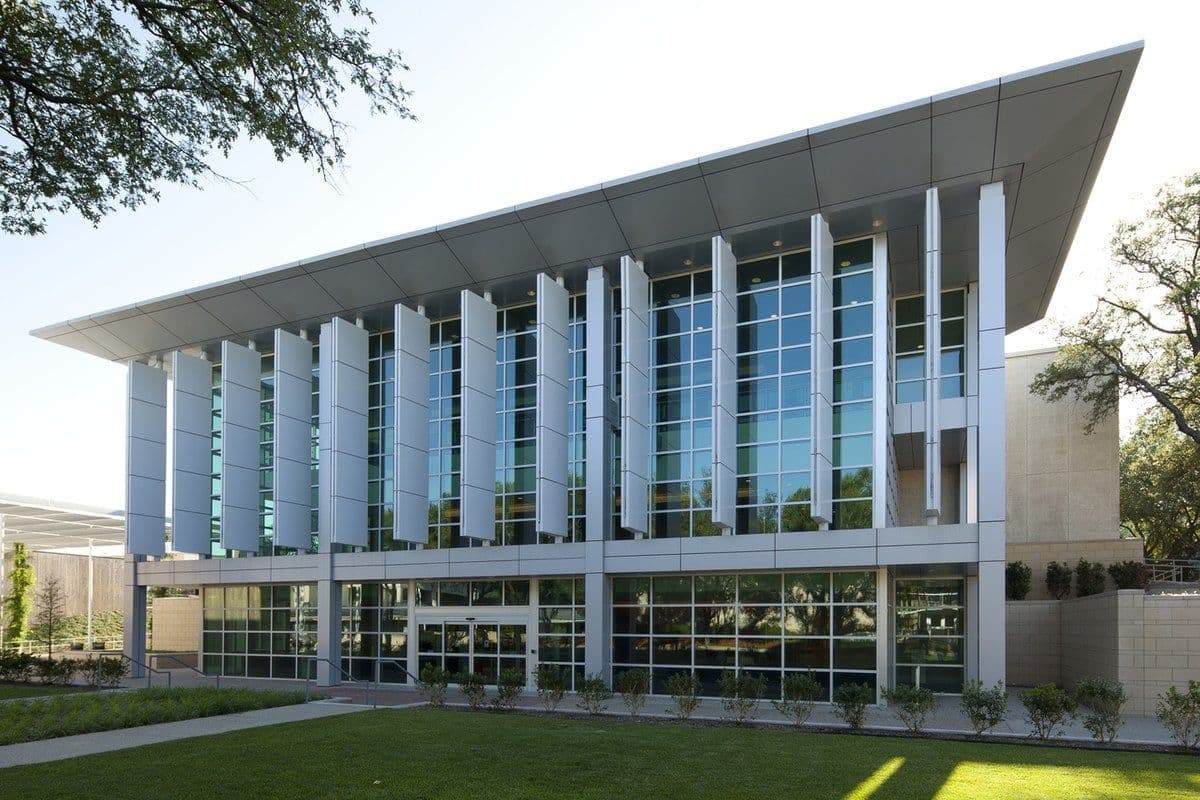
The University of Texas, Dallas is a public university in Dallas, Texas and is the northernmost university in the University of Texas system. It is renowned for its Naveen Jindal School of Management, which is one of the top 30 MBA programs in the United States. The university provides a Lavender Graduation for queer students, gender-inclusive housing, gender-inclusive restrooms, Safe Zone Ally training, and services and support through the Student Counseling Center. Although Texas is a conservative state, Dallas is large and has an active LGBTQ community.
George Mason University
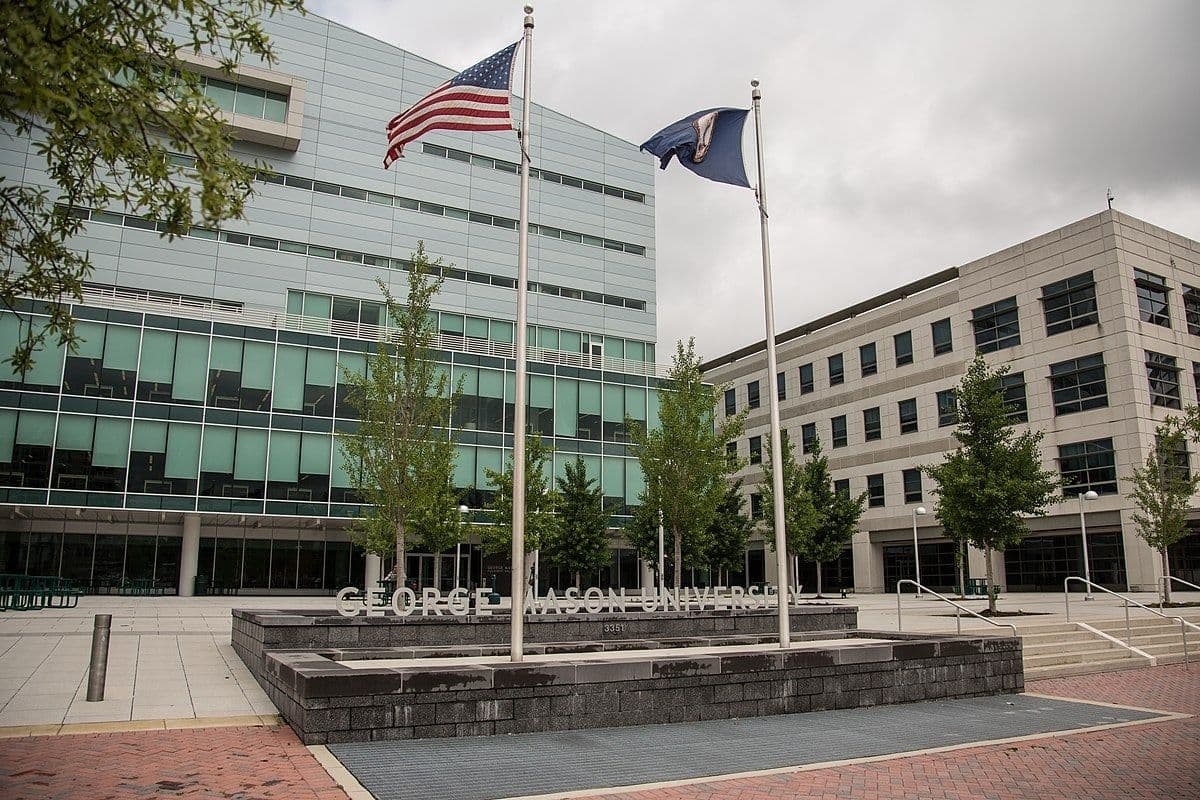
George Mason University is a public university located in Fairfax, Virginia. The university was the first one in Virginia to have a dedicated LGBTQ+ Center. This center provides gender-inclusive restrooms and a trans clothing closet. Additionally, it hosts regular events for the queer community like ice cream socials and field trips. Finally, an LGBTQ+ mentorship program helps connect queer students for academic and professional development purposes. Fairfax and the larger DMV area are open minded and inclusive overall.
University of North Florida
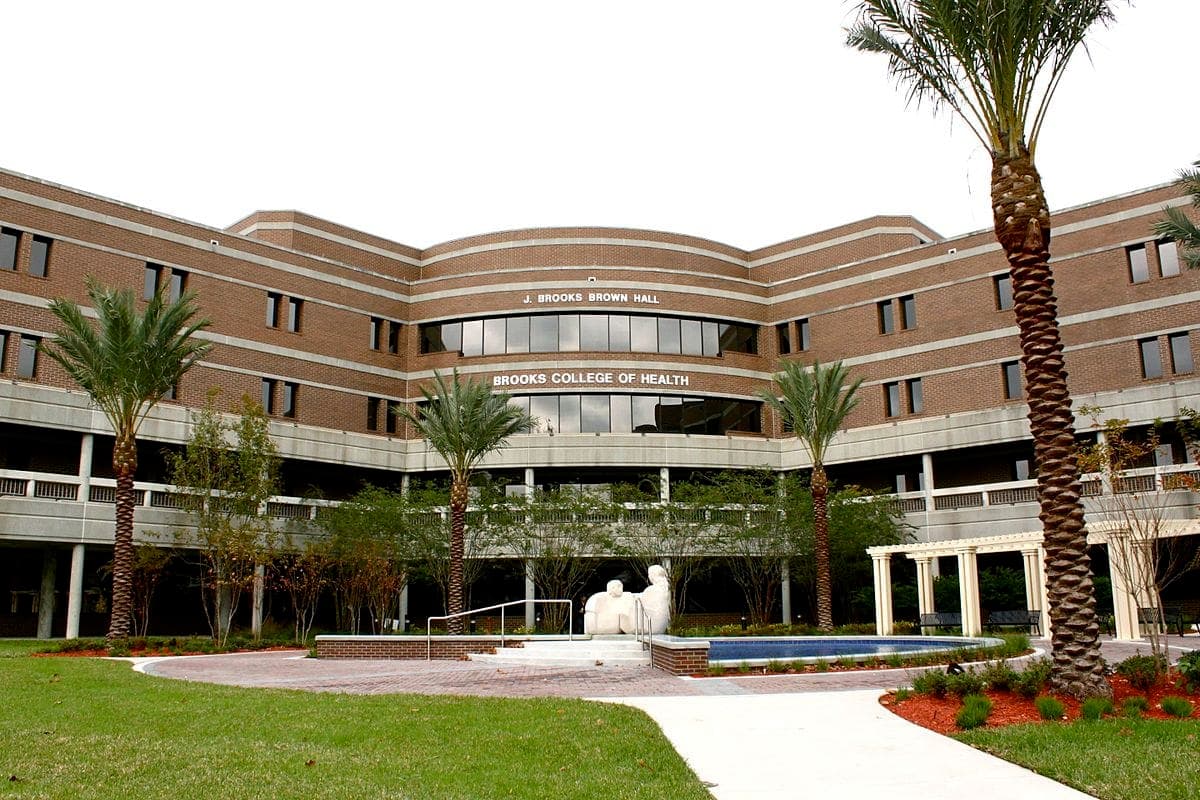
The University of North Florida is a public university in Jacksonville, Florida that is part of the State University System of Florida. The LGBTQ Center offers a resource library, scholarships for queer students, events like the Lavender Graduation or Coming Out Week, and an online newsletter. Duval County, home to Jacksonville, is fairly accommodating to LGBTQ people, even though the state of Florida has passed multiple laws that restrict LGBTQ discourse and education recently.
Use this list as a starting block to begin your college search and selection process. It’s important to know that your college will be accepting of who you are and people that identify with the LGBTQ+ community. This is because irrespective of the college, being LGBTQ+ on campus can come with its challenges. Next up, we discuss those challenges briefly before sharing important resources to help you combat them and make the most of your college experience.
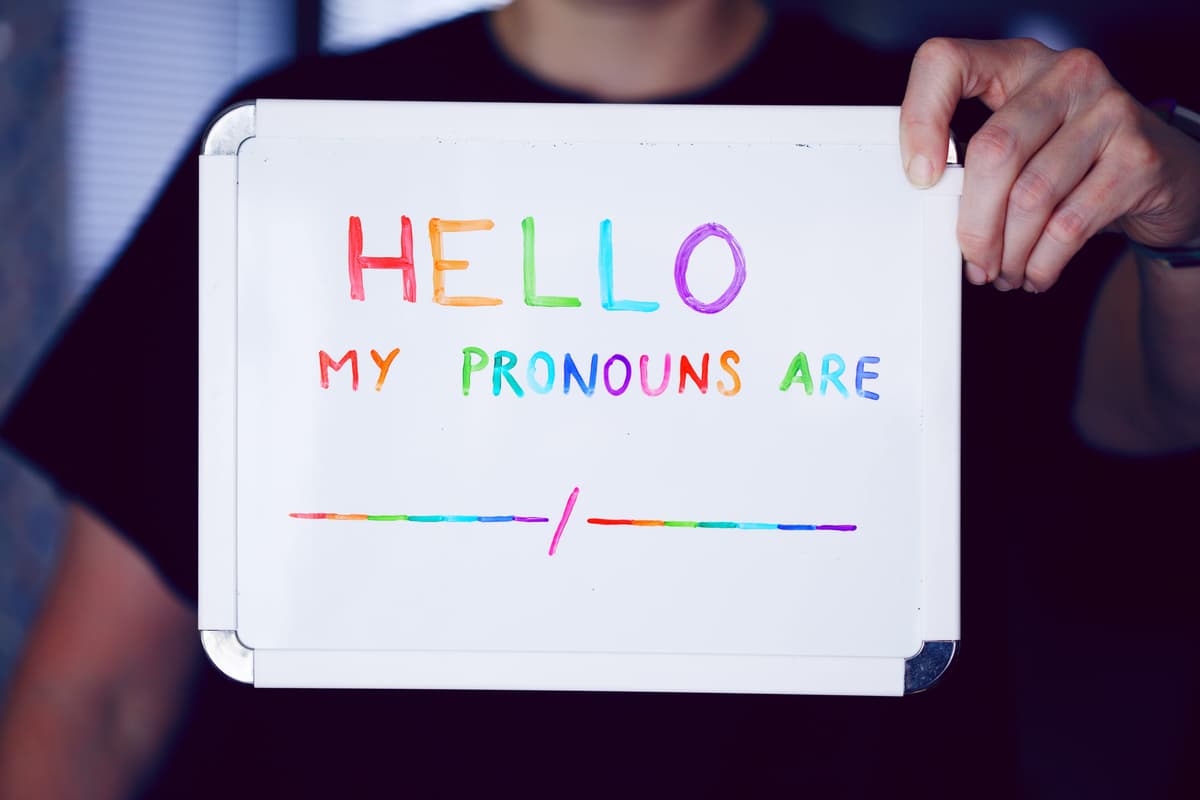
It’s important to understand some of the common challenges LGBTQ+ students face in college. By learning about these challenges beforehand, you can prepare for how to overcome them, and empower yourself to have a happy and healthy college experience from freshman year to graduate school and beyond. It’s also important to know that you’re not alone – you can seek out support to help you overcome them, which we cover in the following section.
Loneliness
Being LGBTQ+ can sometimes feel lonely, especially in a new environment. Even if the college has other LGBTQ+ students, new students may not know how to meet or connect with other students just like them. Additionally, LGBTQ+ students could have been rejected or mistreated by their friends or family back home and may feel alone at college without a support system to fall back on.
Harassment
Even though colleges as a whole can be accepting, individuals may still harass LGBTQ+ students. Harassment can come in many different forms. It is important to recognize any unwanted actions or words that degrade your identity as harassment and to report them. Take some time before going on campus to learn what higher authorities and resources there are to help you with a potential situation.
Coming Out
Due to difficulties at home or a lack of resources for exploring their gender identity in their youth, students may want to come out in college. This can be a challenging decision to make, and it can be a process filled with confusing emotions and conflicting advice.
Anxiety and depression
LGBTQ+ students suffer from anxiety and depression at higher rates when compared to heterosexual students. It is important to know what mental health resources your college will offer you and what support you can find on campus.
Lack of family and financial support
LGBTQ+ students can sometimes deal with a lack of family support and even financial support. Unfortunately, some LGBTQ+ students who come out before or during college may receive limited funding from their parents as an act of retribution. Campus organizations can help with this – don’t be afraid to ask for help if this happens to you.
While these challenges can be intimidating to a LGBTQ+ student looking forward to attending college, there are also millions of LGBTQ+ community members who have avoided or overcome them – and you can too. It’s important to know what you could face, but also remember that so many LGBTQ+ students have had fantastic experiences in college. Check out the below list of helpful resources for LGBTQ+ students in order to continue your success in college.
No matter where you go to school, there are support and advocacy organizations nationwide that can help you both in college and beyond. We compiled some helpful resources for LGBTQ+ students below. Feel free to contact these organizations whether nationally or at your specific campus chapter to learn more details. Also research other organizations not listed here that may just exist at your university.
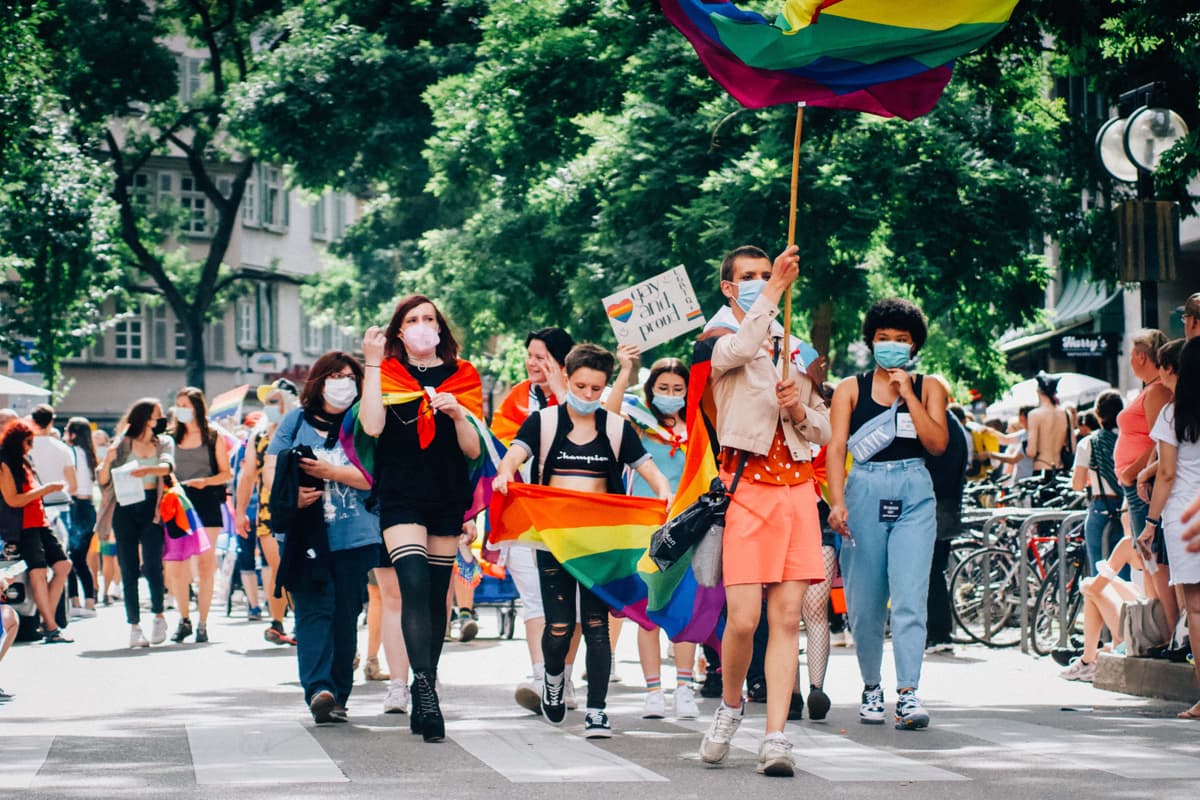
Campus Pride is a nationwide organization which improves the lives of LGBTQ+ college students. They work with LGBTQ+ student organizations in order to provide warm and welcoming campus environments. They also post annual rankings of America’s most LGBTQ+-friendly campuses.
This organization helps LGBTQ+ students currently in college secure jobs and internships. Their target is to help LGBTQ+ students receive offers to work fulfilling jobs in the earliest part of their careers.
This nonprofit organization provides a suicide and crisis hotline for LGBTQ+ students who need those services. Individuals can receive help from this organization by using text or online chat.
The Gay-Straight Alliance (GSA)
GSA is a nonprofit group which brings together LGBTQ+ and straight students to socialize and eliminate stereotypes and bigotry. GSA trains campus leaders to make on-campus organizations where students of all gender identities and sexual orientations can socialize, work on gender diversity initiatives, and offer support to each other.
Safety Net
This organization helps LGBTQ+ students navigate life at religious colleges. Safety Net also works with campus administrators and faculty at these colleges to help accommodate LGBTQ+ students.
Gay, Lesbian, and Straight Education Network
A group that unites students with college personnel to help LGBTQ+ students feel welcome. GLSEN also works with local community organizations to make GSAs and promote special projects and days of observance.
Trans Student Educational Resources
A nonprofit organization that helps colleges foster more trans-friendly environments.
An international fraternity for LGBTQ+ men (and the first queer fraternity) that functions just like other fraternities. It also works to promote an image of diversity and acceptance in the Greek life space.
Coalition for Sexual and Gender Identities (CSGI)
An organization that grows awareness, eliminates oppression, and provides support for the LGBTQ+ community in higher education (for both students and staff). It also improves the campus climate, organizes program development, and increases funding for research/scholarship all for or about the LGBTQ+ community.
Use these resources to help you thrive in college! And if you are a family member reading this or a student with supportive parents, check out the helpful resources below for friends and family of LGBTQ+ college students.

Here are some helpful resources for family and friends to support LGBTQ+ students. Like the other lists, this list is not exhaustive, but should give you a good starting point for supporting your loved one on their college journey. Be sure to contact the colleges you are interested in to get some supplemental resources and learn about college-specific programs as well.
An organization devoted to promoting equality, inclusion, and diversity for LGBTQ+ students. Open to LGBTQ+ friends, family members, and advocates, It has many local chapters as well as key information and resources on its website.
As mentioned above, Campus Pride is one of the biggest support organizations for LGBTQ+ college students. They also have a dedicated section for family and friends of LGBTQ+ students, offering in-depth details on how to support these students. It is arguably the best informational resource for all things LGBTQ+-related.
Our Proud Families
Group provides editorial content and helpful information on how families can be more supportive of their LGBTQ+ children. Their blog posts and video posts offer valuable insights on how to support your LGBTQ+ loved ones.
This is the largest civil rights organization in the US, and it has a special chapter on LGBTQ+ rights. The organization gives helpful information on coming out for LGBTQ+ people and their families.
Gay and Lesbian Guide to College Life
This is a book published by the Princeton Review that lets you know how to thrive at different colleges as a queer student. This is best for people wanting detailed information on LGBTQ+ campus life. The book includes an extensive discussion on which colleges are LGBTQ+-friendly with information on their campus organizations, discriminatory policies, local communities, and more.
While the above tips and resources are usually enough to help LGBTQ+ students thrive in college, more difficult circumstances may also arise. Sexual orientations and gender identities are protected categories, and LGBTQ+ students have certain legal rights that can help them deal with challenging situations. These rights are explained below.

Below is a discussion of legal rights that pertain to LGBTQ+ students – something every student and parent should know. This discussion is not exhaustive, and we are not lawyers, but hopefully this gives you a good overview. You should contact university personnel or qualified legal experts to help you if faced with an LGBTQ+ discrimination issue, or dial 911 if there is an emergency.
Title IX
Title IX prohibits any form of discrimination at American colleges that receive federal funding. This includes gender or sexual discrimination. Any violations of this law may result in a loss of federal funding and can open up lawsuits against certain colleges. If you find yourself the target of such discrimination, especially from faculty, you may consider filing a complaint with the US Department of Education.
Unfortunately, Title IX is not universal – religious organizations can circumvent it by claiming that LGBTQ+ identities conflict with their moral codes. You may need to do research to find out if a given religious college has utilized this approach in the past or is a risk to do so in the future.
While Title IX is a federal law, state laws have also evolved to protect the LGBTQ+ community from discrimination. Some states have laws on the books that are very protective of the community, like California, while some states have laws on the books that curtail LGBTQ+ freedoms, like Alabama. Consult state laws on this matter on the internet to see if the state which houses the college you go to is permissive or restrictive towards LGBTQ+ rights.
If you feel especially wronged, contact an LGBTQ+ legal aid society (those legal aid societies which specifically target the community) in order to help your case and draw awareness to other members of the community undergoing similar issues.
College should be a very fun and rewarding experience, no matter who you are or who you love. And all college students deserve to be in an environment where their identity is fully celebrated. Although great strides have been made, the LGBTQ+ experience at colleges can still be improved. By researching the inclusiveness and resources at target schools, seeking out resources, and prioritizing self-care, you can set yourself up for success. Just remember that you don’t have to do it alone – there are so many great resources, communities, and support systems out there to help you make the most of your college experience.
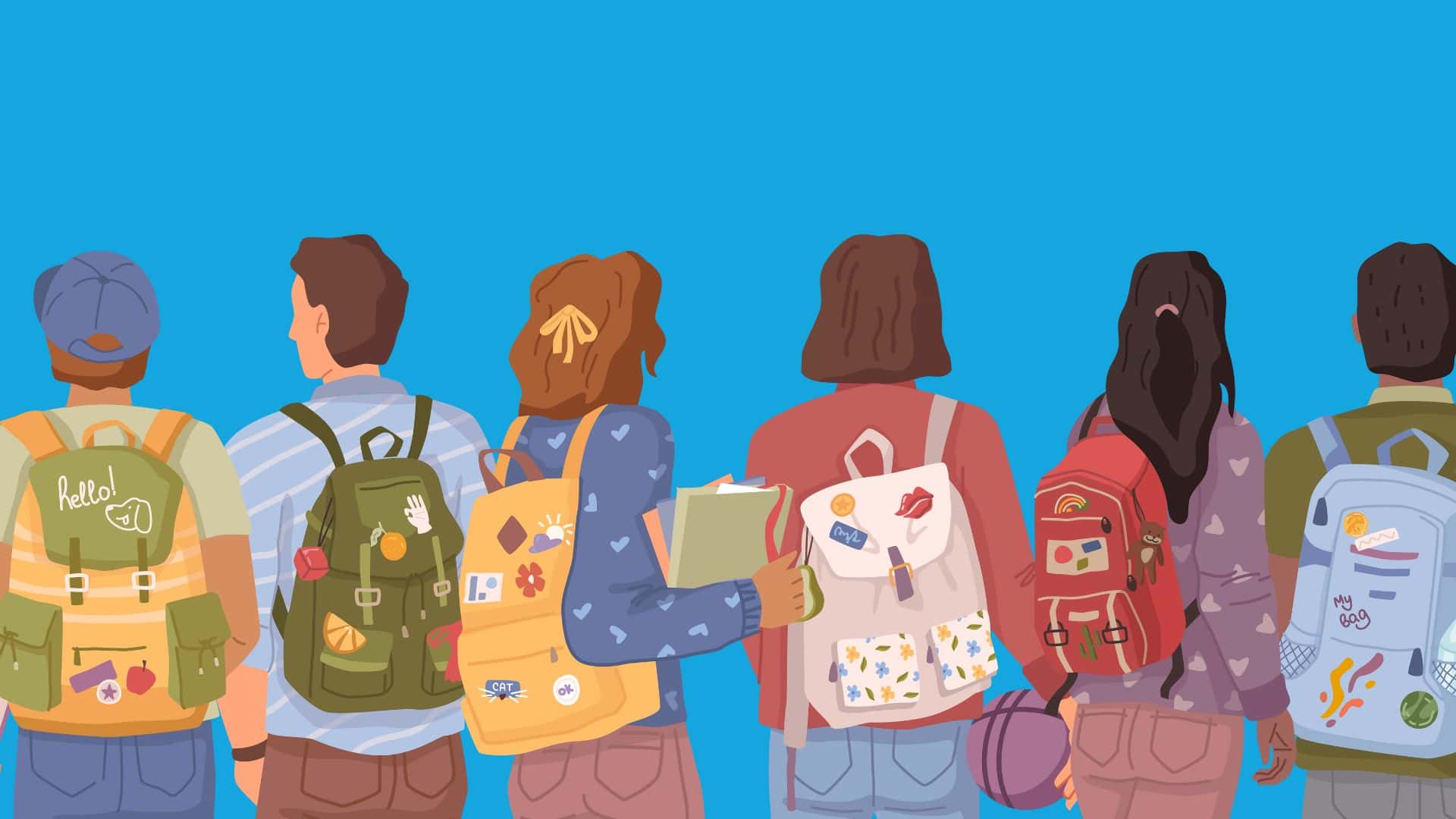
My freshman year of college was filled with excitement, challenges, and a lot of personal growth. That’s why I wanted to share the top 10 things I learned my freshman year of college to help others about to start their college experience.
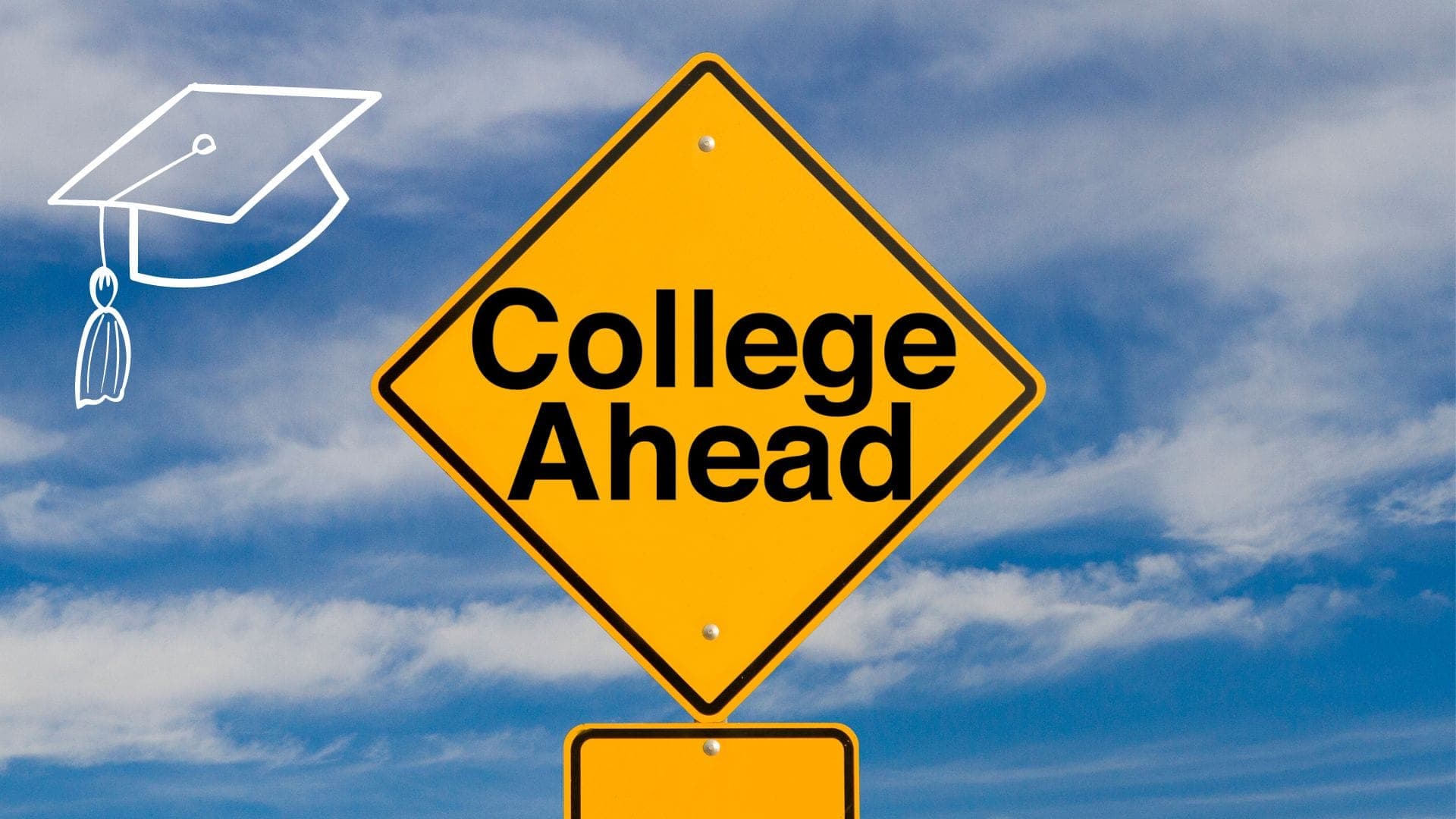
The first week of college is exciting, an adventure filled with new friends, new experiences, and new possibilities. To make the most of this special time, here are my top 10 tips to survive your first week of college with confidence and enthusiasm.

Whether you are teaching in a traditional classroom setting or utilizing an online learning environment, here are a few presentation tips to keep your students engaged throughout the year.